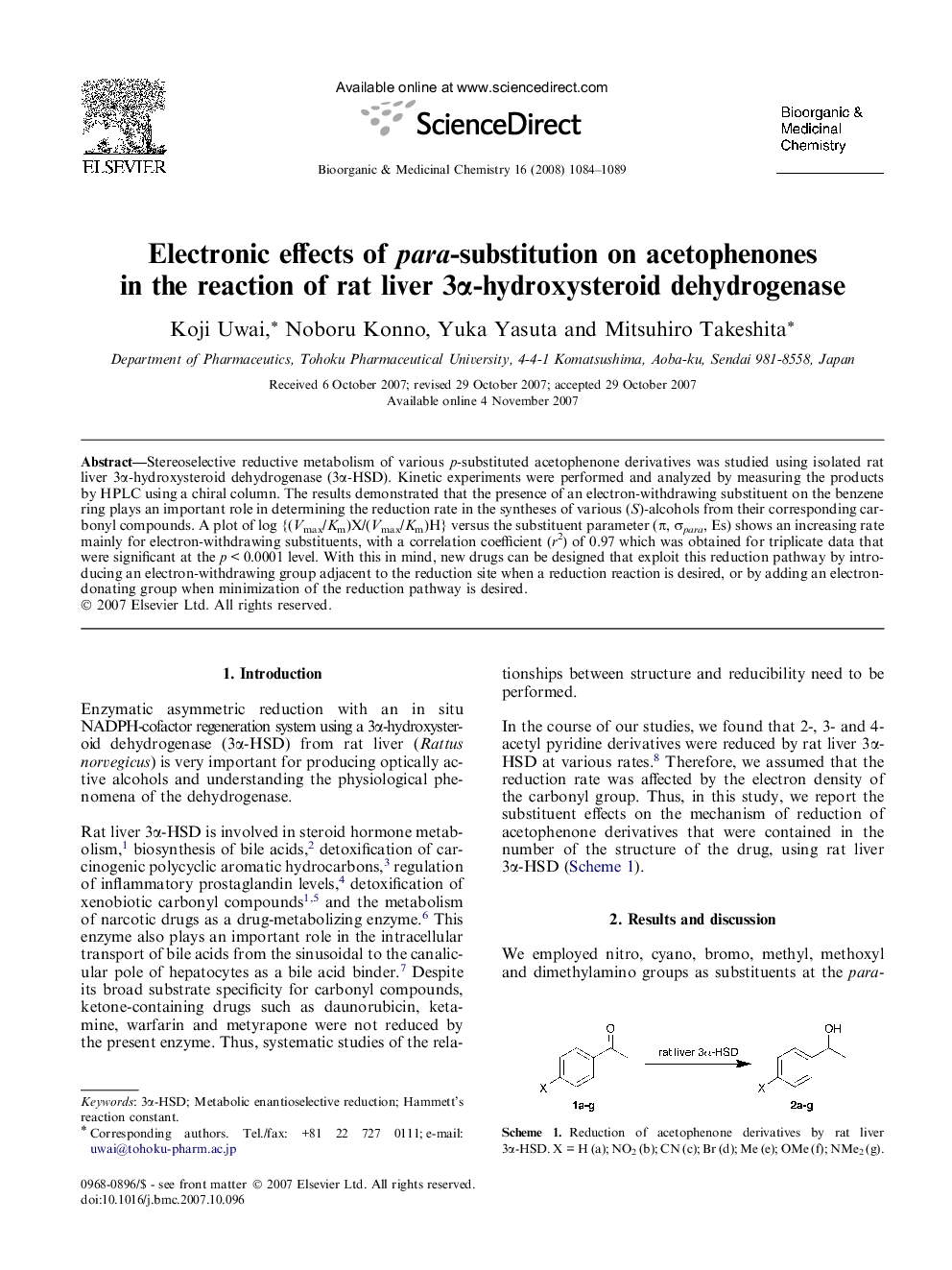| کد مقاله | کد نشریه | سال انتشار | مقاله انگلیسی | نسخه تمام متن |
|---|---|---|---|---|
| 1356824 | 981163 | 2008 | 6 صفحه PDF | دانلود رایگان |

Stereoselective reductive metabolism of various p-substituted acetophenone derivatives was studied using isolated rat liver 3α-hydroxysteroid dehydrogenase (3α-HSD). Kinetic experiments were performed and analyzed by measuring the products by HPLC using a chiral column. The results demonstrated that the presence of an electron-withdrawing substituent on the benzene ring plays an important role in determining the reduction rate in the syntheses of various (S)-alcohols from their corresponding carbonyl compounds. A plot of log {(Vmax/Km)X/(Vmax/Km)H} versus the substituent parameter (π, σpara, Es) shows an increasing rate mainly for electron-withdrawing substituents, with a correlation coefficient (r2) of 0.97 which was obtained for triplicate data that were significant at the p < 0.0001 level. With this in mind, new drugs can be designed that exploit this reduction pathway by introducing an electron-withdrawing group adjacent to the reduction site when a reduction reaction is desired, or by adding an electron-donating group when minimization of the reduction pathway is desired.
We report the substituent effects on the mechanism of reduction of acetophenone derivatives that were contained in the number of the structure of the drug, using rat liver 3α-HSD.Figure optionsDownload as PowerPoint slide
Journal: Bioorganic & Medicinal Chemistry - Volume 16, Issue 3, 1 February 2008, Pages 1084–1089